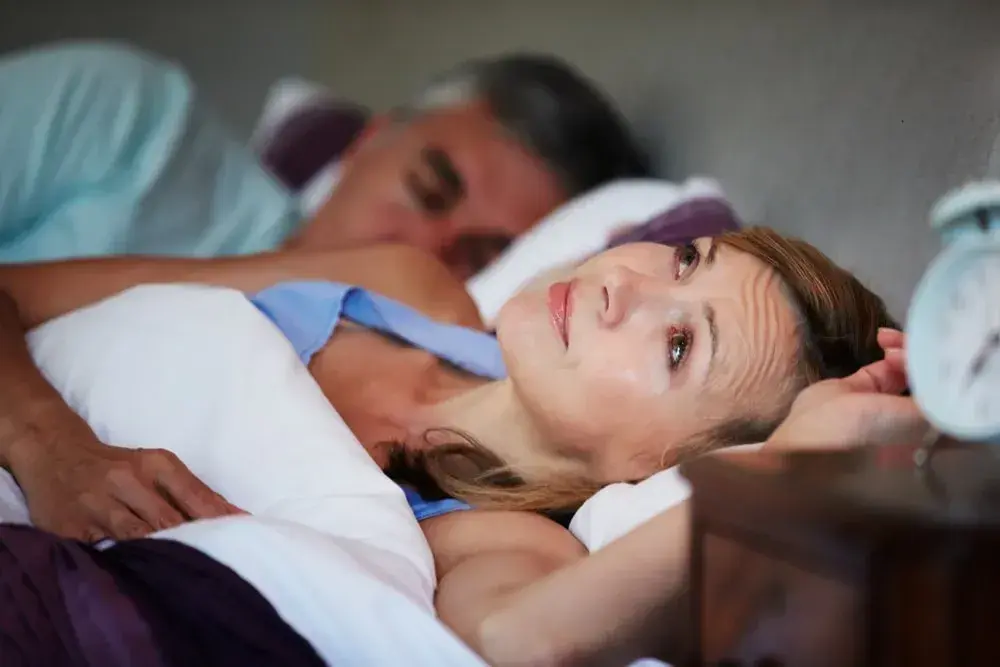
/assets/images/provider/photos/2579701.jpg)
Sex has been shown to promote health benefits: it’s good for your heart, improves sleep, releases feel-good endorphins, and provides feelings of pleasure. But at certain points in your life, you may notice that your sex drive just isn’t what it used to be. When a person has a low sex drive, they may experience problems in their relationship with their partner. A lack of intimacy can lead to physical and emotional drawbacks as well.
But often times, low libido isn’t as simple as “not being in the mood.” In fact, low sex drive is often not a person’s choice at all. They may feel like their sexual desire has simply gone away, and they don’t know why.
With stress levels at an all-time high in this country, it should come as no surprise that stress can significantly interfere with sex drive. Stress releases hormones — and those hormones can take over your brain, pushing out the hormones needed for a healthy libido. Fortunately, there are ways to fight back against stress and the hormonal imbalances it causes.
Cortisol: the stress hormone that kills sex drive
You may have already heard about the hormone cortisol, and how it can lead to weight gain. Cortisol is especially liked to weight gain in the midsection, which is the most dangerous to health. But there’s another sinister side effect of this hormone: it can stand directly in the way of a healthy sex drive.
Cortisol is a “fight or flight” hormone that allowed early humans to escape danger. Then, once the danger was gone, cortisol levels would return to normal. But that’s often not the case today.
Many people are chronically stressed out. Every day, their bodies release mini-surges of cortisol as they deal with stress. When cortisol spikes happen too frequently, the body never returns to a state of calm. And, other hormones don’t have a chance to make an appearance because cortisol is running the show. So having sex while you’re stressed out may feel impossible emotionally, but it’s also pretty difficult to do physically as well.
Testosterone: The fuel for sex drive
A woman or man’s sex drive depends a lot on testosterone. Men have more testosterone than women, and it explains why they are physically able to build bigger muscles, have lower voices, and grow more face and body hair.
But women need testosterone too. It’s a vital part of a woman’s libido and helps keep the other hormones in balance.
High cortisol may suppress testosterone, reducing sex drive in both women and men. When cortisol is out of control from chronic stress, the body thinks it doesn’t need testosterone at that moment. Over time, levels of testosterone continue to decline and sex drive wanes. Symptoms of high cortisol are very similar to those of low testosterone. They include:
- Fatigue
- Sleep problems
- Depression
- Low libido
In addition, women who are postmenopausal or who’ve had a total hysterectomy often have low testosterone. One study found that women’s sex drives increased when they were given a testosterone patch to wear for several weeks. Their distress was also lowered with the testosterone.
Estrogen: A delicate balance
While we think of estrogen as a female hormone, both men and women have this hormone in their bodies.
Without enough estrogen, a woman may have a low or nonexistent sex drive. While we often think of menopause as the primary time of an estrogen drop, it can happen before menopause too. In fact, a woman’s estrogen levels may start to slowly decline in her 20s, gradually getting lower until she reaches menopause.
Body fat has a big effect on estrogen levels. Studies show that having too much or too little body fat leads to low estrogen. If you’ve struggled with your weight, it’s possible that your estrogen is out of balance, which can throw the other hormones out of their normal ranges as well.
Low estrogen isn’t the only issue, however. Chronic stress can lead to estrogen dominance, which may overtake testosterone, leading to low sex drive in both women and men.
For women, an estrogen imbalance can manifest in a number of ways. Some possible signs include:
- Premenstrual syndrome
- Irregular periods
- Vaginal dryness
- Bloating
- Weight gain
- Anxiety attacks
- Trouble sleeping
- Headaches
- Mood swings
Men who have too much estrogen may experience side effects like male breast growth and low testosterone. This can lead to a lower or non-existent sex drive, as well as erectile dysfunction.
Manage stress, balance hormones
You may already know that your stress levels are high and that they’re affecting your hormones and your life. The path back to hormonal balance isn’t a quick and easy road, but it’s possible. Start by finding ways to reduce stress in your life:
- Identify what’s causing your stress. Name the issue, and write down what you can do about it. Also make a note of what you can’t control, such as other people’s behavior.
- Consider mindful meditation, yoga, deep breathing, or other stress reduction techniques. A meta-analysis found that mindfulness shows promise in improving mental health and reducing stress.
- Exercise. Being physically active can help you lose weight, which may bring your hormones closer to the right balance. Exercise also helps you sleep better and is a natural, highly effective stress reliever. It releases endorphins, which make you feel food and boost your mood instantly.
- Join a class, take up a hobby, play a sport, or simply make more time for yourself. Most people run themselves ragged with stress because they never take time to do something that makes them feel good. A once-a-week class or activity or simply a hot bath and favorite book can do wonders for stress reduction.
Finally, talk with a medical professional about getting your hormone levels checked, especially if you have health issues or some of the symptoms mentioned here. This can be an important first step toward getting your sex drive back.
Low sex drive isn’t normal
Many people believe that as we age, it’s normal to be less interested in sex. Actually, proper hormonal balance and a healthy lifestyle can allow you to have a healthy libido well past your reproductive years.
Losing interest in sex doesn’t have to be part of your life — no matter what your age. If you find that your sex drive is waning, speak with a doctor to get hormonal levels checked.
If you think a hormone imbalance is affecting you, we can help. At Garcia Weight Loss and Wellness Centers, we offer hormone replacement therapy, as well as supplements to manage stress. Contact us for your no-cost HRT consultation today.


